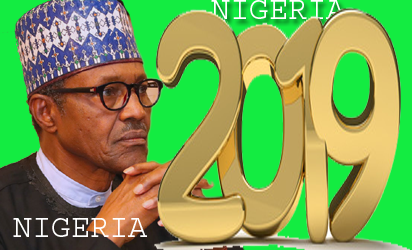
The New Year across the world is usually a harbinger of hope, joy and good wishes. The year 2019 is expected not to be different. However, in our country, it is also a year of decision as Nigerians will be going to the polls in elections that may point a direction for this and future generations.
The elections due in February hold difficult choices for the people. The ruling All Progressives Congress, APC, came a little more than three years ago preaching messages of hope anchored on a change agenda that would transform the lives of Nigerians for the better. But for sundry reasons, many of its promises remain unfulfilled. Some of its functionaries argue that four years is too short a tenure to turn things around; therefore, the party needs another four years to meet peoples’ expectations. While this seems a plausible argument, some people are wont to argue that the performance of the party and its excuses do not inspire confidence that the APC will perform better if given another four years. It is disheartening that four years after its promise to engineer a process of fundamental change in the country, the lot of majority of Nigerians has not changed for the better.
On the other hand, the countrywitnessed 16 years governance under the main opposition party, the Peoples Democratic Party, PDP. Again, the argument is that its scorecard does not recommend its return to power even in the face of the disappointing governance of the last four years.
There are dozens of other parties jostling for various posts, including the Presidency. Some of their candidates hold some promise. However, these parties are like toddlers who need time to grow, and time is not what the country has because a decision has to be made early in the year to guarantee an orderly electoral process on which the country’s democracy rests.
Since the leading parties are not fundamentally different with regards to the economy, especially on issues like privatisation, trade liberalisation and foreign policy, and have the same political world view as far as ideology goes, the choice is narrowing down to more of personality: who may be less clannish, who may handle the insecurity caused by the Boko Haram, farmers-herders clashes and banditry better.
Whatever the choices, Nigerians should reject vote-buying, electoral violence, regional and ethno-religious politics. We should insist that the Independent National Electoral Commission, INEC, is fair and even handed and that the security services, especially the Police, Directorate of State Security and the Armed Forces, are neutral in the elections.
Also importantly, the Federal Government, under President Buhari’s leadership, is under constitutional obligation to ensure that law and order is maintained during the elections, and that the machinery of the state is not used to give undue advantage to the ruling party at the expense of other contending parties. In this regard, it should ensure that rule of law and respect for constitutionalism take precedence over partisan interests.
END

Be the first to comment